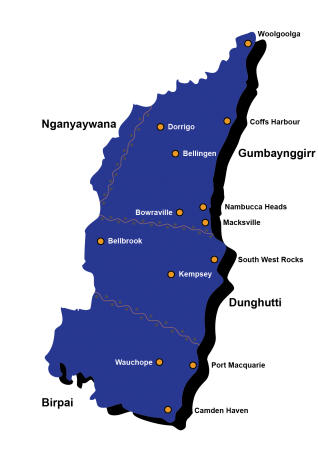About us
 Mid North Coast Local Health District extends from the Port Macquarie Hastings Local Government Area in the south to Coffs Harbour Local Government Area in the north and provides healthcare services across a geographic area of approximately 11,335 square kilometres.
Mid North Coast Local Health District extends from the Port Macquarie Hastings Local Government Area in the south to Coffs Harbour Local Government Area in the north and provides healthcare services across a geographic area of approximately 11,335 square kilometres.
Traditional custodians of the land covered by the District are the Gumbaynggirr, Dunghutti, Birpai and Nganyaywana nations.
It’s estimated that more than 226,422 residents live within the District+. People of Aboriginal and Torres Strait Islander heritage make up 5.7 per cent of the population, compared to 2.9 per cent for all NSW*.
An estimated 11 per cent of residents were born overseas. Coffs Harbour has a growing number of refugees settling in the area. The main refugee communities include Afghani, Sudanese, Burmese, Congolese, Togolese, Sierra Leone, Ethiopian, Eritrean and Somali. Smaller numbers of migrants also reside in Laurieton, Wauchope and Port Macquarie.
Over the next decade, the District’s population is expected to increase by 13 per cent. The largest increases are being projected for the Coffs Harbour and Port Macquarie Hastings local government area.
The main health issues facing the District are mental health and chronic age related illnesses such as cardiac, pulmonary, diabetes, renal disease and dementia.
+ Source: NSW Health
* Source: Australian Bureau of Statistics 2016
We provide a broad range of public health services to our community through seven public hospitals, and twelve community health centres. These services include the Mid North Coast Cancer Institute and Mid North Coast Brain Injury Service.
Collaboration
Openness
Respect
Empowerment
